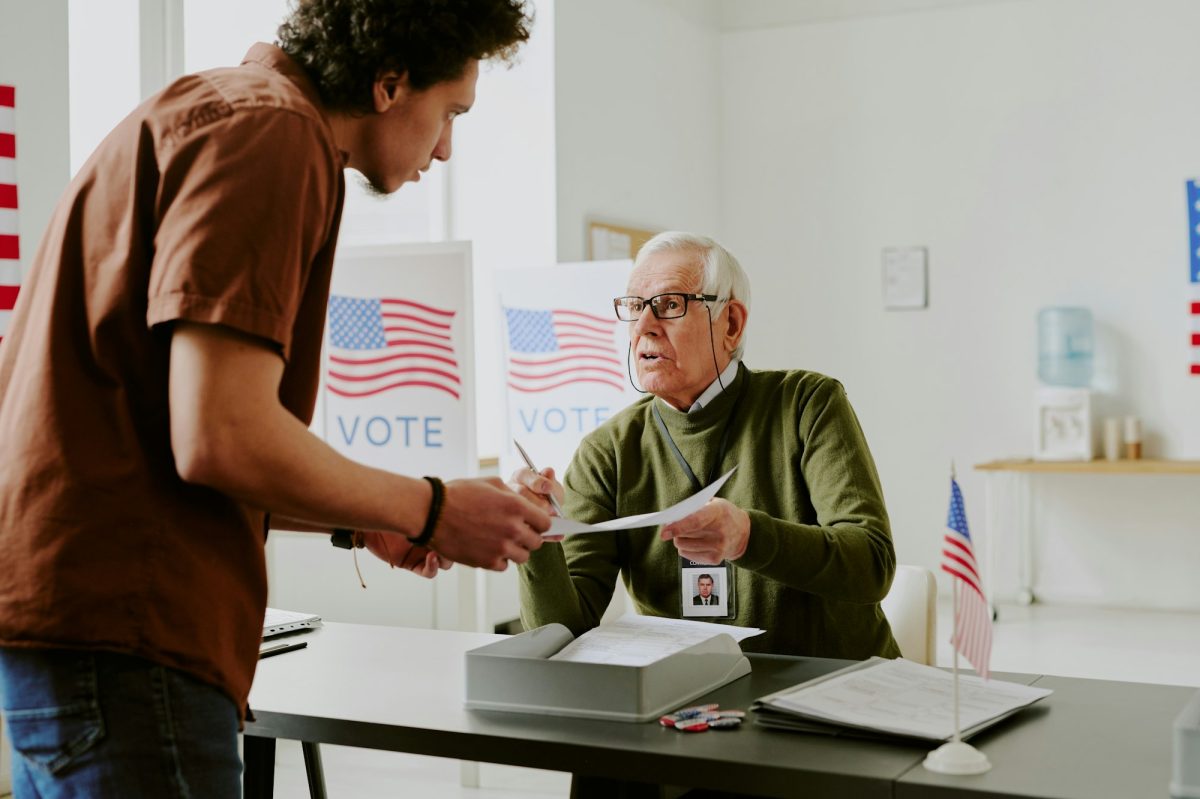Voter Education Resources
- Home
- Elections Headquarters
- Voter Education Resources
Be an Informed Voter
Whether you’re voting for local, state, or federal candidates, you must do your research. This means investigating the issues, examining what candidates have said and done, and thinking critically about how their positions align with the issues that matter most to you.
Whether you’re a first-time voter or a seasoned participant, this Voter Education Resources page will guide you through what to ASK, KNOW, and DO this election season. Here you’ll find tools and information to help you understand the voting process and research the candidates who want your vote.
Remember, voting is more than casting a ballot—it’s about making informed decisions that impact the future of your family and your community.
Time Left Until Election Day 2024
November 5, 2024

ASK
What to Ask Candidates
Before voting, it’s crucial to ask yourself and the candidates where they stand on the issues that matter most to you and your family. But how do you know what to ask? This section contains resources and guiding principles to help you craft thoughtful questions. Remember, your voice as a parent leader can shape the conversation.
Identify the Issues
What policies or issues impact your family or your community the most? Education, healthcare, climate change, and economic policies are common priorities, but think about what specifically matters to you.
Craft Your Questions
Formulate questions around your key issues. Ask yourself: “Where does each candidate stand on the issues important to me?” Look for clear answers, not vague promises.
Do Independent Research
Don’t rely on one source. Check multiple, nonpartisan websites to compare how different candidates talk about the same issues.
-
10 Questions to Ask Someone Running for Local Office
-
Sample Questions: Debates/Voters' Guides
-
Questions for Local Elections Officials
-
Questions For Racial Equity Although the points in this article are intended for use in the hiring process, these can also be applied to those campaigning for the job of becoming your elected representative.

KNOW
Educating Yourself on Key Issues
Understanding the issues on your ballot is critical to making an informed choice. It’s not enough to know what the candidates say; you need to understand how their policies affect you, your family, and your community. We’ve curated a list of trusted, non-partisan resources to help you dive into the issues, including research tools like Vote Smart and Ballotpedia.
Local Issues Matter
Don’t overlook local elections. Local elections often have the most immediate impact on your daily life. Decisions about public schools, housing policies, infrastructure, and public safety are often made at the local level. Voting for mayors, city council members, and school board representatives can influence how your community is governed. Research your local candidates and ballot measures—these decisions can affect your family, neighborhood, and local resources.
State and National Issues
State-level officials, such as governors and state legislators, create policies that affect education funding, healthcare, and environmental regulations. At the national level, representatives, senators, and the president set broader policies that shape the economy, immigration, and foreign relations. State and Federal laws and decisions can trickle down to impact your local community, so understanding candidates’ stances on these issues is vital.
Judges: The Long-Term Impact
One of the most lasting effects of any presidential administration is the appointment of judges, particularly to the Supreme Court. These judicial appointments can shape the legal landscape for generations, as federal courts rule on key issues like civil rights, environmental regulations, and healthcare. Research how presidential candidates approach judicial appointments—they will influence decisions that affect your community and the country for years to come.
-
Understand the US Election Process Resource from VoteSmart.org
-
Ballotpedia A website where voters can look up candidate history in local, state, and national Elections
-
VoteSmart Vote Smart’s mission is to provide free, factual, unbiased information on candidates and elected officials to ALL Americans
-
Vote USA Enter your postal address to view the office contests, candidates and ballot measures that will appear on your ballot. Candidate comparisons include pictures, bios, website and social media links, objectives, positions and views on issues.

DO
Take Action!
If you're eligible to vote, participating in elections is one of the most direct ways to make an impact. But even if you cannot vote, there are many ways you can still participate in the democratic process and help others exercise their right to vote.
Make Sure You're Ready to Vote
If you can vote, this is your opportunity to take direct action in shaping the future. Make sure you’re registered, know what’s on your ballot, and are prepared for Election Day.
Ways to Engage Without Voting
Even if you’re not eligible to vote, there are valuable ways you can support the democratic process:
Sign up to be a Poll Worker
Poll workers are essential to ensuring elections run smoothly. Learn more about how to become a poll worker through your local election office or through the United States Election Assistance Commission (EAC).
Offer Rides to the Polls
Many people struggle to get to polling locations on Election Day. Volunteer to drive voters to the polls, helping ensure everyone can cast their ballot. Local volunteer organizations in your community are a great place to start if you’re willing to offer your services as a driver. The organizations often include faith-based groups, neighborhood groups, civic associations, and senior centers. Alternatively, you can share out on social media that you’re willing to carpool or drive people to the polls on Election Day.
Be A Poll Observer
Poll observers or watchers ensure that elections are fair and accessible. Reach out to local nonpartisan organizations to see how you can get involved as an election observer. Always remember “The role of a poll watcher is to observe and monitor the election, without violating voter privacy or disrupting the election.”
Volunteer for Voter Registration Drives
Help register new voters in your community. You can get involved by contacting local organizations or signing up through Rock the Vote or When We All Vote.
Spread the Word!
Share nonpartisan voter education resources with your network. Whether it’s through social media or community events, you can help others make informed choices on Election Day.
-
Poll Worker Resources for Voters Sign up to be a poll worker with this tool from the United States Election Assistance Commission (EAC).
-
Discounted rides to the polls from Lyft The ridesharing app company Lyft will offer discounted rides to the polls on Election Day (November 5, 2024) across the country.
-
Poll Watchers Information Read up and learn more about becoming a poll observer on this page from the United States Election Assistance Commission (EAC).
-
When We All Vote Voting Registration Drive
-
Rock The Vote - Host a Voter Registration Event
-
Host a Ballot Party Bring family & community together to discuss the issues & candidates
-
Support a Candidate Learn different ways to support your chosen candidate for office
Research, Prepare, and Vote
Doing your homework before Election Day helps you make informed decisions. Research the candidates and issues using trusted resources, ask the right questions, and vote with confidence. Explore our resources to make sure you're prepared to engage in your community—whether by voting, volunteering, or helping others participate in the process.


